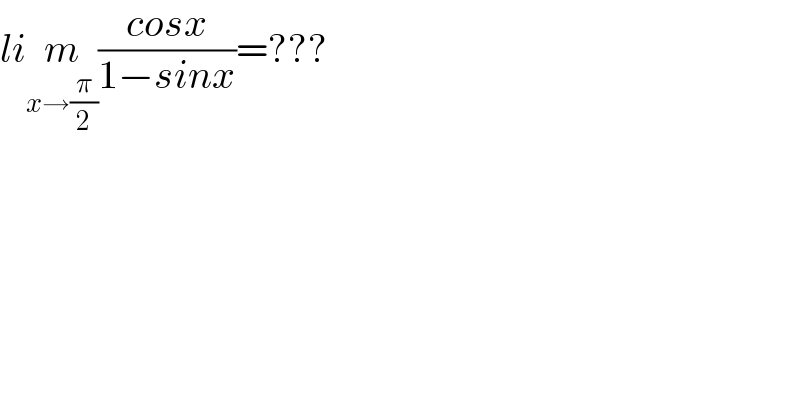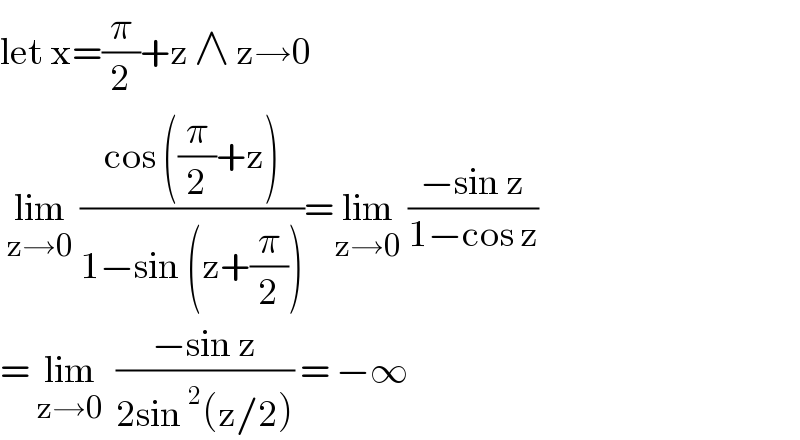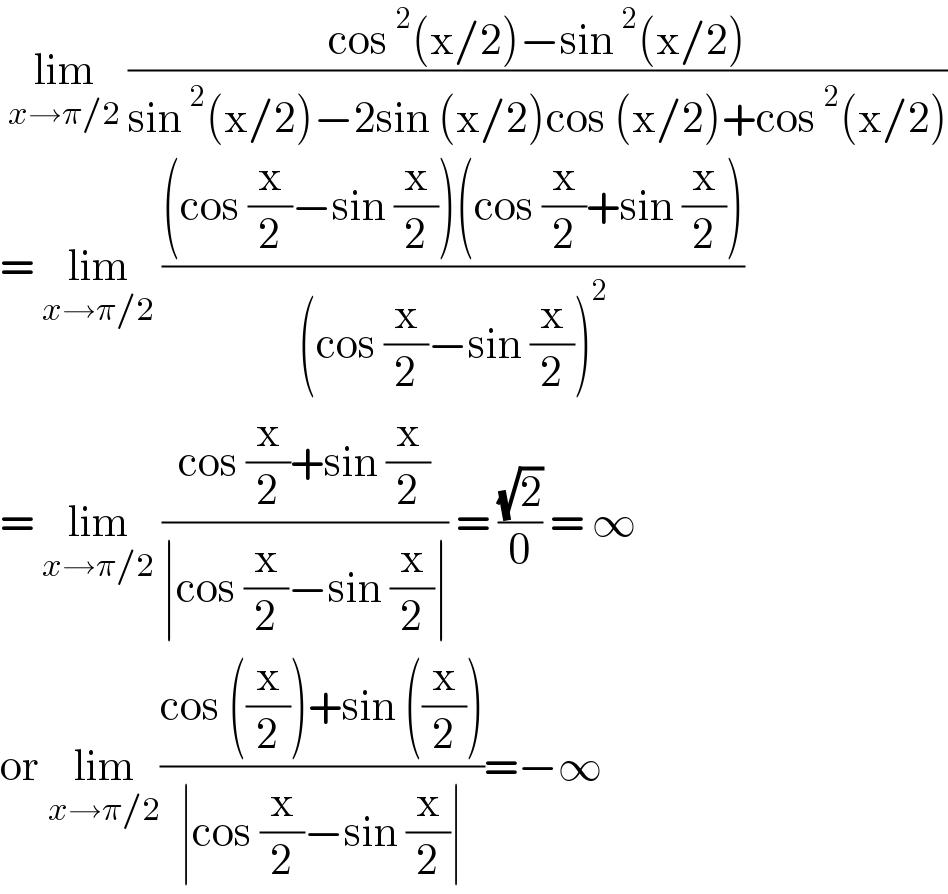
Question and Answers Forum
Question Number 128439 by Study last updated on 07/Jan/21

Answered by benjo_mathlover last updated on 07/Jan/21

Answered by liberty last updated on 08/Jan/21

Answered by MJS_new last updated on 08/Jan/21

Commented by liberty last updated on 08/Jan/21

